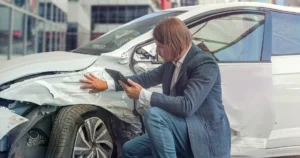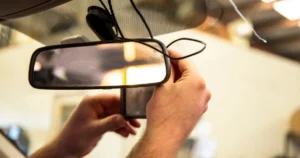 Indiana is a tort state that does not require personal injury protection. However, this insurance coverage may come in handy to provide immediate medical coverage for injuries received in the event of an accident.
Indiana is a tort state that does not require personal injury protection. However, this insurance coverage may come in handy to provide immediate medical coverage for injuries received in the event of an accident.
The dedicated South Bend car accident attorneys at Pfeifer, Morgan & Stesiak can discuss how different forms of auto insurance can help in the unfortunate event that you are injured in a traffic accident. We are available to discuss the particular circumstances surrounding your claim during a free case review.
Liability Insurance Requirements in Indiana
Indiana uses a fault-based insurance system, meaning that the insurance company that covers the at-fault party is responsible for paying the damages to the injured parties, up to policy limits. All drivers in Indiana must maintain minimum liability coverage on their vehicle in the following amounts:
- $25,000 per person for bodily injury liability
- $50,000 per accident for bodily injury liability
- $10,000 per property damage
Liability insurance only pays for the damages that the other driver or passengers suffered and does not cover damages that the at-fault party suffered. Drivers can purchase insurance to cover their own bodily injury or property damage by purchasing collision or comprehensive coverage.
Personal Injury Protection Coverage
Personal injury protection or PIP coverage pays the medical expenses that the driver and passengers incurred regardless of who was at fault in the accident. Some PIP insurance policies also cover other related expenses, such as lost wages or childcare and housekeeping costs if your injuries prevent you from taking care of these responsibilities.
Since Indiana is a fault-based state, it is not legally required to maintain a minimum amount of PIP insurance. However, many people do choose to purchase some amount of PIP insurance for extra protection.
Adding this coverage can help fill the gaps in other forms of insurance. For example, if you sustain significant injuries in the accident and the at-fault driver only had the minimum liability coverage, your PIP coverage could pay for some of your additional medical expenses, up to your policy limits. PIP coverage also extends to the passengers in your vehicle, so it provides more protection in the event of an accident.
The amount of PIP coverage you should purchase depends on several factors, including:
- The availability of other forms of insurance, including health insurance
- The amount of your co-pays, deductible and out-of-network costs
- Limits of other forms of insurance
- The amount of coverage you believe you would need in case of a serious accident
If I File a PIP Claim, Can I Still Recover Damages Against the At-Fault Driver?
Yes. Filing a PIP claim does not take away your right to recover damages against the at-fault driver. You can still file a claim against the other party’s insurance to receive compensation for:
- Property damage
- Medical expenses
- Future medical expenses
- Lost wages
- Pain and suffering
Additionally, your insurance company can pursue reimbursement for the amount that it paid on your PIP claim through subrogation.
How a Lawyer May Help My Claim
If you were injured in a car accident, it is important that you retain the services of a qualified personal injury lawyer who can investigate your claim and determine the insurance coverage that may apply.
The skilled personal injury lawyers at Peter T. Nicholl Law Offices can advise you of your rights and the options you have for pursuing compensation. We can also handle communication with the insurance companies and negotiate for a settlement on your behalf.
Because we charge no upfront fees and work on a contingency-fee basis, there is no risk in contacting us. We only get paid if we help you recover compensation on your claim.
Contact us today to schedule your free consultation. (574) 444-0741












